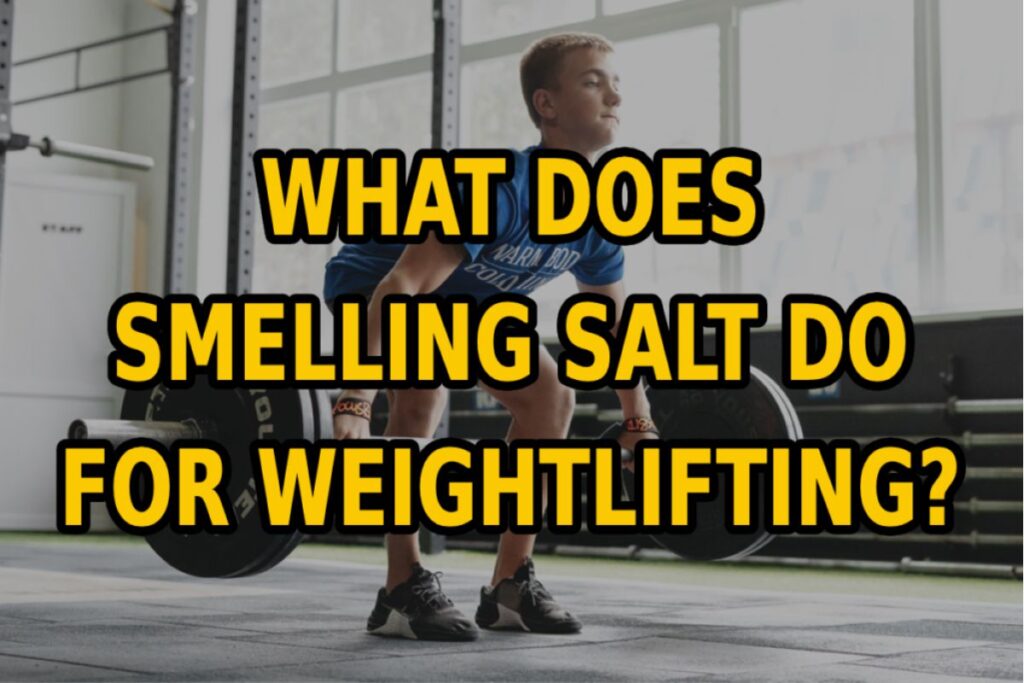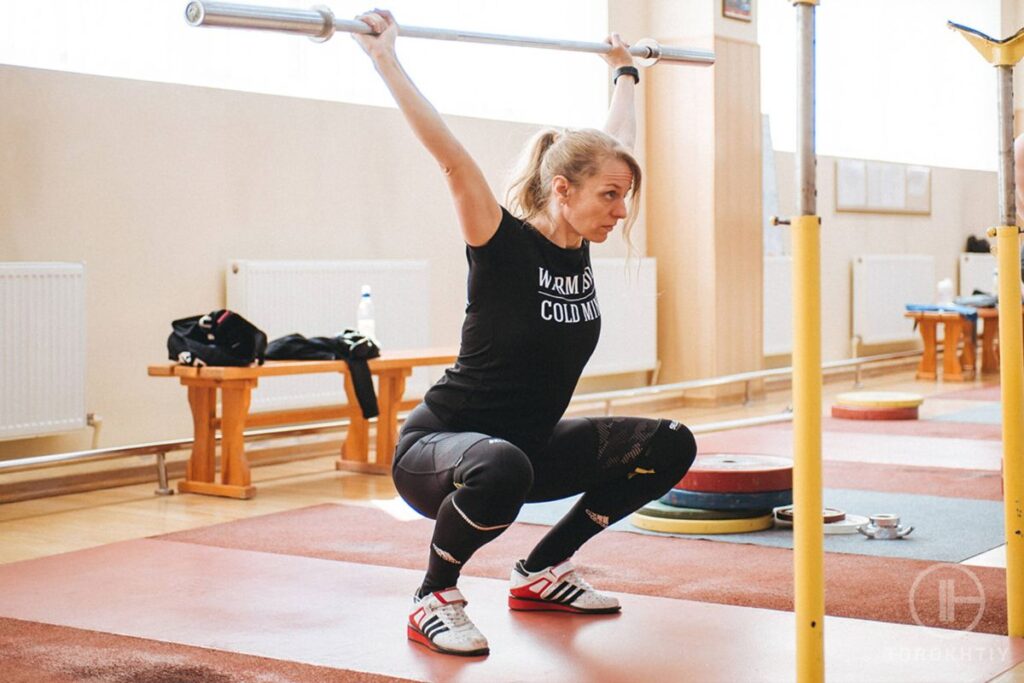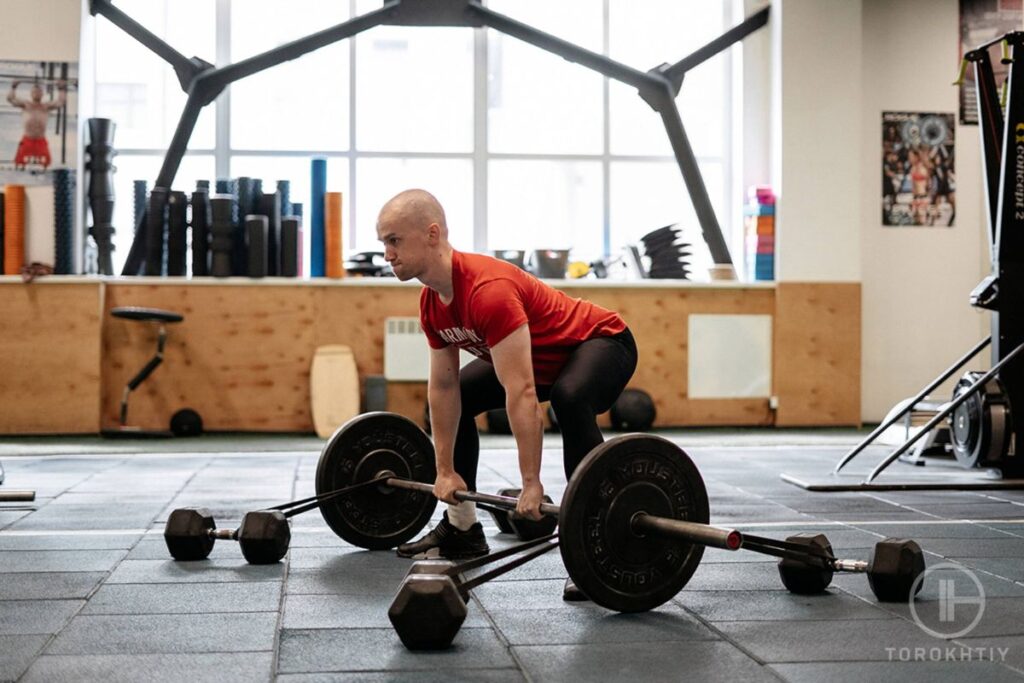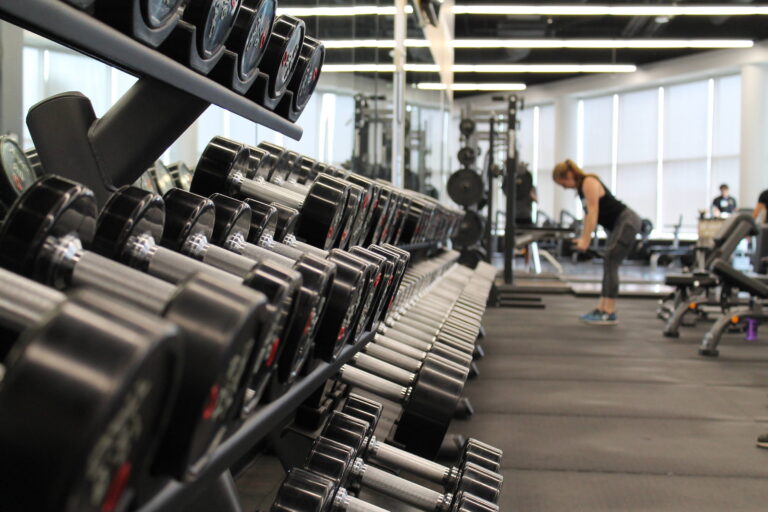What Does Smelling Salt Do for Weightlifting? 6 Benefits and 7 Dangers
Do you giggle at the thought of a weightlifter smelling some salt before their workout? Well, if you do, then you probably don’t know what does smelling salt do for weightlifting.
I’ll admit – if you’re not familiar with this and don’t know the benefits, I can see why you would think smelling salt is useless, ridiculous, or just a plain waste of time. The thing with our noses is, whatever you inhale will end up causing a reaction somewhere. Think about pollen; you inhale it and it causes a reaction if you’re allergic.
Smelling salt is a lot like that, except in a good way. It can boost energy and increase heart rate and blood pressure… In short, it does a lot. Today, we’ll check out how do smelling salts work for powerlifting, why do weightlifters smell salt and whether it’s something that can benefit you.
What does smelling salt do for weightlifting? In short – it stimulates the senses by releasing ammonia gas. This irritates the mucous membrane and triggers an inhalation reflex. The strong scent can help with fatigue, and it enhances focus, alertness, and energy.

What Are Smelling Salts?
In my experience, a lot of people don’t know exactly what smelling salts for working out are. Or, if they do, they only know a little bit about them – it’s a mound of tiny crystals that have a crazy strong scent. If that’s what you think, too, then you are right. But smelling salts are a lot more than that.
First, we’ll start with what they are. Smelling salts are chemical compounds (usually in the form of crystals or capsules) that release a very strong scent when you crush them.
They have been around for a very long time and people in ancient Rome and the Victorian era used them to help someone who fainted or felt dizzy.
When you sniff smelling salt, you’ll notice something very interesting – it will make you take a deep breath. What happens is, ammonium carbonate (which is what smelling salt is usually made of) triggers a reflex in your body, and that makes you take a long breath. It’s kind of cool, right?
They’re very popular with, you guessed it – weightlifters. They can help make them feel more awake and focused during workouts or competitions. You’ll also notice that, if you’re feeling sleepy and you grab some smelling salt, it’ll help wake you up.
There’s a very common misconception that smelling salts make you stronger. That is (unfortunately) absolutely incorrect – smelling salts will not directly influence your physical strength in any way, shape or form. They will stimulate your central nervous system, which can make you feel more alert, but they won’t actually make you stronger. So don’t think it will do for you what spinach does for Popeye – it doesn’t work that way.
Today, you don’t have to go sniffing salt if you’re feeling tired. There’s an abundance of caffeine drinks to help if you need a bit of an energy boost. Still, they remain super popular, but should be used with caution. If you have a heart condition or respiratory issues, make sure to check with your doctor if smelling salts are safe to use.

How Do Smelling Salts Work?
I’ve often heard people say that gym smelling salts only have a placebo effect and you only think they’re doing something. In reality, you’re just a doofus smelling some strong scented stuff.
I see why someone would think that, but luckily, smelling salts do work. Maybe not in the way someone thinks, but they do have an effect on your body. And the effect is both physiological and psychological.
When we’re talking about physiological effects, the strong smell from the salts triggers a reflex known as lacrimal reflex. That reflex stimulates a nerve that’s responsible for our sense of smell, which then sends signals to the brain stem; it causes you to immediately take a deep breath.
When you take a deep breath, your oxygen intake skyrockets – that can help if you’re feeling dizzy. The extra oxygen also increases your heart rate and blood pressure – this can make you more alert. And my favorite thing; smelling salts can trigger endorphin release, which improves your mood and is a natural painkiller.
Psychologically, if you’re anticipating the smell and you believe that it’s doing something great for you, smelling salts can up your energy level and make you more alert. When it comes to psyche, the effect is mainly placebo, but it can still be very useful.

What Does Smelling Salt Do For Weightlifting: 6 Benefits
If somebody asked you to write up a list of all the benefits that smelling salts give you while weightlifting, this is what it would look like.
1. Energy Boost
When you sniff smelling salts, you’ll immediately have to take a deep breath. That will up your oxygen intake and make you feel more awake. If you’re a weightlifter, it will (temporarily) help with your performance.
2. Mental Clarity
The super strong scent can momentarily make you feel more focused and alert. For weightlifters, this can be very useful during heavy workouts.
3. Breaking Through Plateaus
Plateaus are a pain, and smelling salts can help you push through them. That sudden burst of energy and focus can make you push through what you think is your limit and overcome exhaustion (both mental and physical).
4. Pre-Lift Stimulation
Weightlifters are sniffing ammonia before lift because it can help them psych themselves up for the lift. The scent also helps with concentration.
5. Pushing Through Sticking Points
If you get to a really challenging part of your lift, the energy boost you get from the scent can help you push past it.
6. Mental Reset
If you train for a long time, you’ll inevitably get tired, and your focus won’t be what it was at the beginning of your workout. Smelling salts can be a great tool to reset your mind and regain focus.
Great! Smelling salts are amazing for weightlifting. Let’s all use them. Period. Case closed! Or is it? Aren’t there any drawbacks? Let’s find out!

7 Potential Dangers Of Smelling Salts
I’m sure you’re asking yourself – are smelling salts bad for you? Well… I don’t have a yes or no answer for you. They can be a great help, but they can also make you end up in the ER.
The thing is, you need to know how to use them, and you need to be sensible about them. You can’t expect to use smelling salts before every lift and before every workout and expect not to have any consequences. If you go too far with anything, you’ll get hurt. Even drinking too much water can be an issue, so how can an excessive use of smelling salts be any different?
Another thing to take into account – allergies and sensitivities. You could be allergic to some of the ingredients or you could have a condition that can be triggered by inhaling the smell (asthma, anyone?).
1. Irritations
Smelling salts can irritate your eyes and skin. Most smelling salts contain ammonia, which can make your skin itchy and red. It can even lead to chemical burns.
2. Allergies
You may be allergic to some of the ingredients in the smelling salts. If you are, you may get a rash or hives. However, an allergic reaction can also lead to difficulty in breathing, swelling and anaphylaxis.
3. Sniffing Too Much
You should never go crazy with smelling; use them reasonably. If you smell too much, you may get anxious, restless, or even have a panic attack. If you struggle with anxiety, check with your doctor what they think of using smelling salts and if it can hurt you.
4. Becoming Too Reliant on Smelling Salts
If you rely too much on smelling salts, you may begin to think you cannot train or perform without them. This issue is only psychological, but it can still cause problems. Smelling salts are only a tool, they should never be used in place of a warm-up, technique, or training. Be sensible and use them only when you feel you need to, do not make them a crutch.
5. Issues With Natural Way of Breathing
Smelling salts make you take a deep breath, which is not a natural breathing pattern. Sure, it can make you feel more energetic and alert, but it can also cause hyperventilation and an imbalance in your oxygen and carbon dioxide levels.
6. Masking Signs of Exhaustion
The effects of smelling salts are invigorating; that’s what we like about them. But there’s an issue with that. Smelling salts can make you feel energized, when in reality, you’re exhausted. This can make you push too far past your limits, which means you’re more likely to get injured.
7. Breathing Issues
If you use smelling salts too much (or incorrectly), they can irritate your nose, mouth, throat, airways and lungs. The ammonia can make you wheeze, cough and cause shortness of breath. If you’re really sensitive (or use them completely wrong), smelling salts can cause respiratory distress.

Are Smelling Salts Legal Or Allowed In Competitions?
They sound too good to be true, so of course you’re wondering if they’re allowed or even legal.
The only answer I can give you is – it depends. Not what you wanted to hear, I know, but that’s really how it is.
IWF (International Weightlifting Federation) or any of the national weightlifting federations are the ones deciding what’s legal and what is allowed. Basically, they will decide on whether the conduct is prohibited or not, which also means they decide on whether smelling salts are allowed. Smelling salts’ legal status can change from country to country and even from region to region.
It’s very important that you research whether smelling salts are allowed at your competition, because it can mean a difference between you competing or not. Don’t get yourself into a situation where you’re disqualified when you can prevent it by digging up some information.
I would also like to reiterate the importance of being safe. Generally speaking, smelling salts are considered to be safe, but you need to be careful with using them. I always advise checking in with your doctor or coach. Nobody can give you better guidance than them and you know they want what’s best for you. If they think smelling salts are too risky and can do more damage than good, do yourself a favor and listen to them.
Another important thing I want to mention – you need to check the WADA (World Anti-Doping Agency) Prohibited List and Anti-Doping Regulations to see if smelling salts are explicitly banned. The best way to stay on track with what’s allowed and what’s not is to openly communicate with competition organizers and to check the newest guidelines on anti-doping regulations.

How To Use Scented Salts Safely?
Why do weightlifters smell salt? That is clear by now. But is it safe? I hope I didn’t scare you into thinking smelling salts can do you so much harm that you shouldn’t even think about using them. Don’t worry, there’s a really easy way to use them safely. It’s basically common sense but let me get into it in a bit more detail.
Do not cheap out on smelling salts. They can do a lot of good, but they can also do a lot of damage. You want something from a trusted manufacturer, sealed and labeled with instructions and ingredients. Do not fall for people trying to sell you something that’s “just as good as a name brand, only cheaper”. There’s a reason something costs what it costs, and your health has no price.
Once you’ve gotten your hands on your good quality smelling salts, you need to read the instructions on the label. Get familiar with ingredients and dosage instructions.
Now, let’s get into the actual use. You want to be in a well-ventilated room before you even open your container, or the smell will be overwhelming and suffocating.
Do not get the salts in direct contact with your eyes or skin. You’re only supposed to inhale them and if you get into direct contact somehow, rinse your skin immediately with water.
You also don’t want to inhale them directly from the container. Hold it a few inches away from your face and take a few gentle sniffs. You don’t want to actually inhale the crystals.
Once you’re done with using them, you’ll want to store them properly. Smelling salts will be the happiest in a dry, cool place away from direct sunlight and heat. Oh, and another thing – keep them somewhere kids can’t reach them.
If you follow these simple rules, you’ll never have to wonder are smelling salts bad for lifting or your health, because they’ll always do their magic for you.
🔻FREE OLYMPIC WEIGHTLIFTING PROGRAM
Get started on your weightlifting journey with the Torokhtiy Free Olympic Weightlifting Program! Perfect for beginners, this FREE 2-week program focuses on Snatch and Clean & Jerk techniques. Suitable for all levels, it’s designed for muscle and technical preparation.
Download now for FREE!
FAQ
Is The Use Of Ammonia Inhalants Safe?
In short – yes and no. If you use them as the label directs and don’t have any health issues ammonia inhalants can trigger, it’s safe. If you have a heart condition, respiratory issues or do not use them correctly, they can be dangerous. If you’re ever doubting whether you should use them or not, it’s always good to talk to a doctor to get their advice.
Why Do Smelling Salts Make You Stronger?
If you use smelling salts, you’ll notice that you will be more focused, more alert and you’ll get a temporary boost of energy. This leads to adrenaline release and enhanced muscle activation which can be beneficial towards your performance.
Conclusion
Crystal after crystal and we’ve come to the end. We’ve sniffed all there is to sniff for today! Now you should understand what do powerlifters smell before a big lift and you should have a pretty good idea if it’s something you want to be smelling as well.
So, what’s your take on this topic? Do you use smelling salts for setting pr? Beating your personal records is a great motivation for many – and opting to tactics such as using smelling salts surely came to mind. Were you interested in what do heavy weightlifters sniff, or did you know all about smelling salts and just wanted more information? What are your experiences with smelling salts, and do you recommend them? Have you seen any results?
I’m off to sniff some salts, but don’t hesitate to leave a comment! I’d like to know your thoughts on this.
Also read:
- Critical Weightlifting Mistakes
- Power Clean
- How to Warm Up Before Lifting
- What Is a Deload Week in Weightlifting
- Hang Clean vs Power Clean
- How Many Calories Does Weightlifting Burn
References:
- Are Smelling Salts Safe? // WebMD: https://www.webmd.com/brain/are-smelling-salts-safe
- Ammonium Carbonate // NCBI: https://pubchem.ncbi.nlm.nih.gov/compound/Ammonium-Carbonate
- Smelling salts // NCBI: https://www.ncbi.nlm.nih.gov/pmc/articles/PMC2579444/
- lacrimal reflex // Britannica: https://www.britannica.com/science/lacrimal-reflex
- Understanding Endorphins and Their Importance in Pain Management // NCBI: https://www.ncbi.nlm.nih.gov/pmc/articles/PMC3104618/
- Acute Effects of Ammonia Inhalants on Strength and Power Performance in Trained Men // NCBI: https://pubmed.ncbi.nlm.nih.gov/28922211/
- Elevated arousal following acute ammonia inhalation is not associated with increased neuromuscular performance // NCBI: https://pubmed.ncbi.nlm.nih.gov/34228592/
- Asthma // ClevelandClinic: https://my.clevelandclinic.org/health/diseases/6424-asthma
- What Smelling Salts Do to Your Body // ClevelandClinic: https://health.clevelandclinic.org/smelling-salts/
- Adrenaline // ClevelandClinic: https://my.clevelandclinic.org/health/body/23038-adrenaline
Why Trust Us?
With over 20 years in Olympic Weightlifting, our team does its best to provide the audience with ultimate support and meet the needs and requirements of advanced athletes and professional lifters, as well as people who strive to open new opportunities and develop their physical capabilities with us.
By trusting the recommendations of our certified experts in coaching, nutrition, dietology, and sports training programming, as well as scientific consultants, and physiotherapists, we provide you with thorough, well-considered, and scientifically proven content. All the information given in the articles concerning workout programming, separate exercises, and athletic performance, in general, is based on verified data. We ensure that you can rely on our professionals’ pieces of advice and recommendations that can be treated as personalized ones which will benefit you and fully meet your needs.
The product testing process is described in more detail here
Author: Sergii Putsov
Head of Sport Science, PhD
Best Results: Snatch – 165 kg,
C&J – 200 kg
Sergii Putsov, Ph.D., is a former professional weightlifter and National team member, achieving multiple medals in the 94 kg weight category at national competitions. With a Master’s degree in “Olympic & Professional Sport Training” and a Sport Science Ph.D. from the International Olympic Academy, Greece, Sergii now leads as the Head of Sport Science. He specializes in designing training programs, writing insightful blog articles, providing live commentary at international weightlifting events, and conducting educational seminars worldwide alongside Olympic weightlifting expert Oleksiy Torokhtiy.








